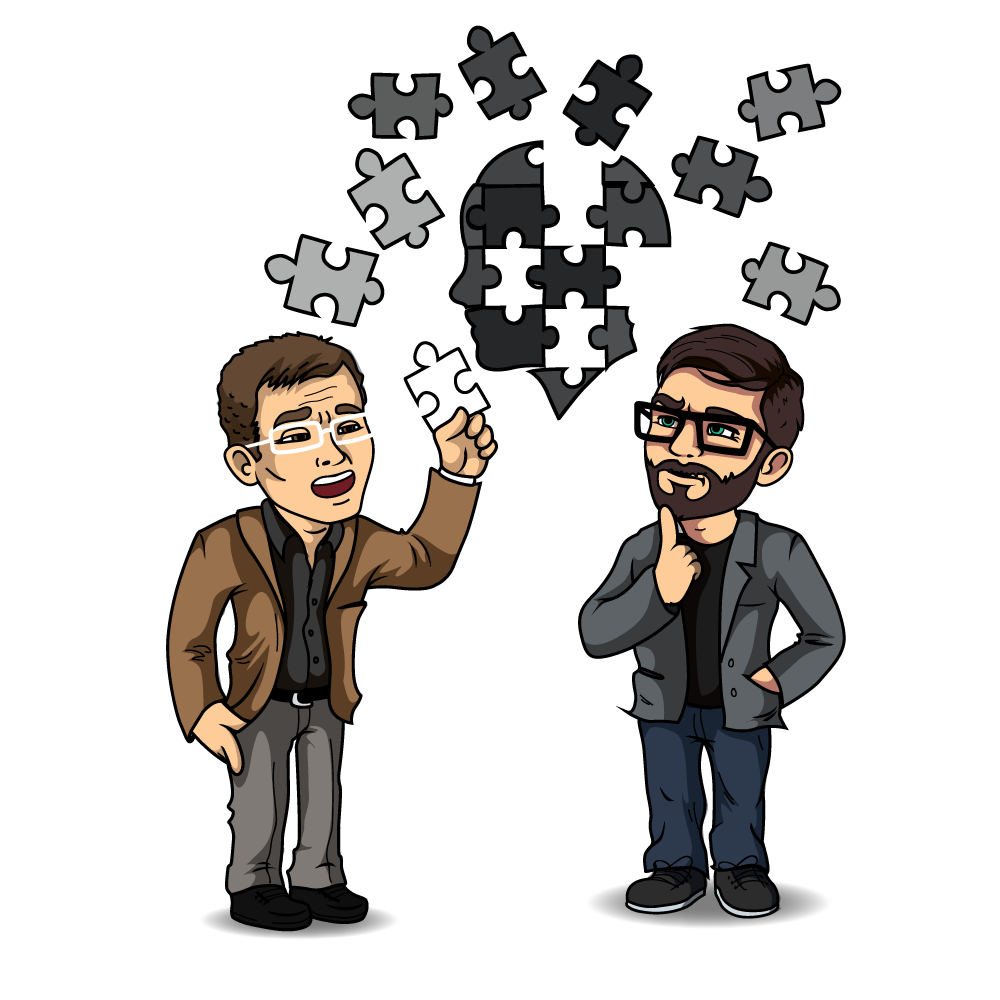Memberships
The Science of Psychotherapy Memberships give you access to our monthly magazine, a comprehensive archive of magazines, courses, resources, and community.
 The Science of Psychotherapy
The Science of Psychotherapy
is Dedicated to the Development
of the 21st Century Therapist
Who is able to...
The Science of Psychotherapy started out as The Neuropsychotherapist magazine back in 2013 to help inform therapists about the latest in neuroscience and how this knowledge can inform clinical practice. We've come a long way since then, and accumulated a lot of material. Our Standard Subscription membership is intended to give you access to this accumulated knowledge and keep you current, not only in neuroscience but in all the science of psychotherapy and the practice of mental health care.
The Science of Psychotherapy, monthly PDF magazine: Expert articles about the practice and science of what we do as clinicians in mental health.
Complete access to our archive of magazines (The Neuropsychotherapist and The Science of Psychotherapy) since inception in 2013.
Video and reading courses for your professional continuing education, including our documentary series. We also have our own certificate program based on our learning material.
Access to our full repository of knowledge about the science of psychotherapy that continues to build month by month.
Community: Ask questions and discuss topics within courses and within the larger repository of knowledge. As part of the tribe you get to learn from seasoned professionals and fellow members from all over the world.
Click on the resources below to see a breakdown of the content.

Brain Fundamentals (Bundled articles, videos, and other resources). Standard Subscriber resources about brain structure, networks, memory and related topics associated with basic neuroscience for mental health care workers.

The Body (Bundled articles, videos, and other resources). A collection of resources for Standard Members relating to the body, gut-brain axis, vagus complex, biofeedback, and related topics.

Molecules of Mental Health (Bundled articles, videos, and other resources). Resources about genetics for the mental health care worker.

Psychopathology & Disorders (Bundled articles, videos, and other resources). The science of psychopathologies for mental health care workers. A resource vault for Standard Members.

Approaches to psychotherapy (Bundled articles, videos, and other resources) for Standard Members of The Science of Psychotherapy.

Quantum, Consciousness, Complexity, and other topics of science that may be of interest to psychotherapists.

This Foundations of Mirroring Hands for Psychotherapists and Hypnotherapists is the complete video introduction to Mirroring Hands by leading expert Richard Hill. This is a 6 hour certificate course. (Standard Members free)
$110

All the magazines in one place.

2 hour course on dopamine with Richard Hill.
A growing vault of invaluable information to help you in your practice and a community to support you:
 You get a copy of our monthly magazine, The Science of Psychotherapy, that brings you the latest from the very best in the field to help you in your clinical practice.
You get a copy of our monthly magazine, The Science of Psychotherapy, that brings you the latest from the very best in the field to help you in your clinical practice.
You also get all our our archived magazines that go back to 2013 - A wealth of information that you have complete access to.
Our former magazine, The Neuropsychotherapist, is part of this archive that features hundreds of articles, book chapters, interviews, that will give you a greater understanding of the elements that impact mental wellbeing.
We have organised all this information into a number of "Core Resource" packages. Places you can go to find out about specific topics, download specific magazine articles, watch videos, ask questions and discuss topics with us - all within this site.
Below are the core resources we have for you:
A few of the many reviews about our content
Being a child psychotherapeutic counsellor using the arts, I loved the subjects in this issue
Being a child psychotherapeutic counsellor using the arts, I loved the subjects in this issue
Read LessMade things more clear about the difference between traditional and brain based therapists.
Made things more clear about the difference between traditional and brain based therapists.
Read LessAs a psychology bachelors student interested in further study in neuropsychology, this course has provided great content and knowledge. It also broadened my ...
Read MoreAs a psychology bachelors student interested in further study in neuropsychology, this course has provided great content and knowledge. It also broadened my perception about this field. The content was easy to understand and the theoretical framework easy to grasp. I have recommended this course to several colleagues as well. It is highly highly recommended if you are interested in this field.
Read LessIncredible information that will be ever so helpful when working with my clients.
Incredible information that will be ever so helpful when working with my clients.
Read LessWell structured and a useful introduction to ‘quantum psychology’
Well structured and a useful introduction to ‘quantum psychology’
Read LessGood context with research and theories to support depression causality and treatments .
Good context with research and theories to support depression causality and treatments .
Read LessI enjoyed the explanation of both left and right functioning and also upper and lower brain functions. Look forward to understanding more about the areas in ...
Read MoreI enjoyed the explanation of both left and right functioning and also upper and lower brain functions. Look forward to understanding more about the areas in the limbic system.
Read LessAwesome presentation of the functions and malfunctions of the Neocortex. It was informative and relatively easy to follow.
Awesome presentation of the functions and malfunctions of the Neocortex. It was informative and relatively easy to follow.
Read LessThis course covers the basic neuroscience underpinning memory in an accessible way, concisely yet clearly.
This course covers the basic neuroscience underpinning memory in an accessible way, concisely yet clearly.
Read Less